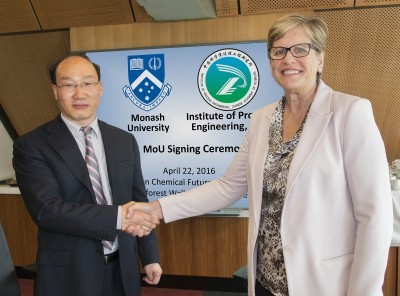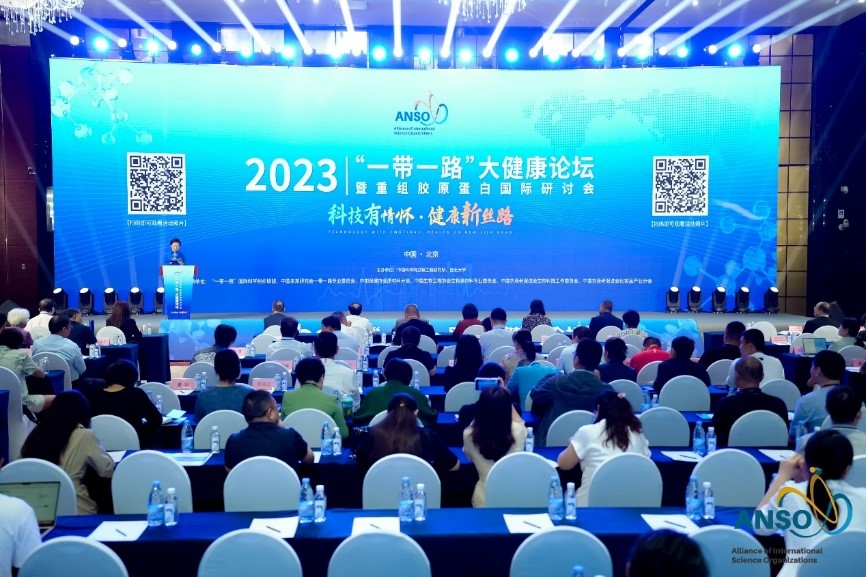
(L-R) Professor Suojiang Zhang, Director General of IPE,Chinese Academy of Science and Professor Cristina Varsavsky, Deputy Dean of the Faculty of Science, Monash University
In the morning of 22 April 2016, Academics from Australia and China, gathered at Monash University’s Clayton campus to formally sign an agreement heralding a historic partnership between Monash University and the Institute of Process Engineering, Chinese Academy of Science (IPE, CAS).
The Memorandum of Understanding (MoU) will see the creation of the China Australia Centre for Ionic Liquids (CACIL) and involves an enhanced exchange of staff, students and resources between the two institutions.
This partnership with Monash University builds on the long-term cooperation between the Center of Ionic Liquids Clean Process and Energy-Saving (ILC) and he Monash Ionic Liquids Group (MILG), which both have been developing ionic materials and their applications for over fifteen years.
Both IPECAS and Monash believed that, this center will cement relationships between the two organizations and support exchange of research students and young researchers between the laboratories, expanding their experience and access to facilities, as well as encouraging industry engagement.
_______________________________________
What are ionic liquids?
Ionic liquids are a family of ionic solvents (salts that are liquid at or around room temperature) that have extensive applications in sustainable chemistry and energy generation and storage. Potential areas of use include advanced battery technology for electric vehicles, dissolving materials for use in biofuel synthesis and stabilizing therapeutic proteins for medicinal use.
For more information, please visitMonash Ionic Liquids Group and Center of Ionic Liquids Clean Process and Energy-Saving (ILC).
 Search
Search




 京公网安备110402500047号
京公网安备110402500047号